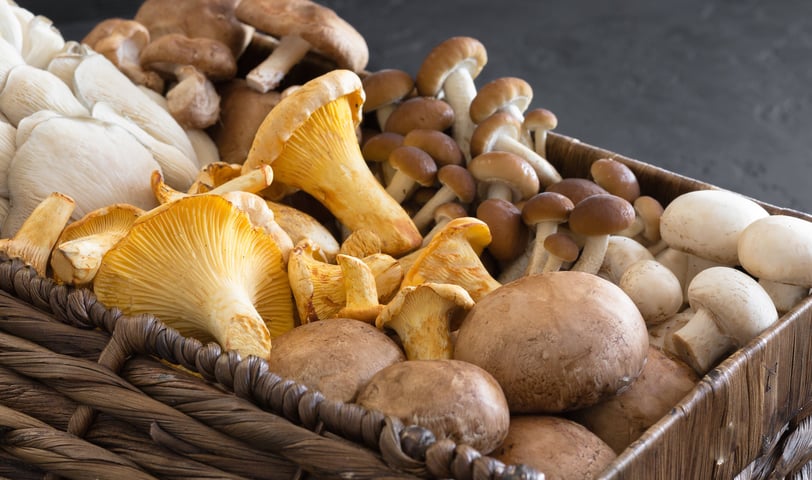Mushroom Facts
Did you know that mushroom are a plant base sustainable food source? Mushrooms are fungi that will grow once a tree dies or burns own. They are earth's natural decomposers.
HEALTHY EATS
8/9/20232 min read


Mushrooms have been consumed for both culinary and medicinal purposes for centuries. They offer a variety of nutritional and health benefits:
Nutrient-rich: Mushrooms are a good source of vitamins and minerals, including vitamin D (especially when exposed to sunlight), B-vitamins (like riboflavin, niacin, and pantothenic acid), selenium, potassium, copper, and iron.
Low in Calories: They are low in calories, fat-free, and cholesterol-free, making them a great choice for those watching their weight.
Dietary Fiber: Mushrooms can be a good source of dietary fiber which is beneficial for gut health and can help in regulating bowel movements.
Antioxidant Properties: They contain antioxidants like selenium and glutathione which can help in protecting the body from oxidative stress and potential damage from free radicals.
Immune System Support: Some mushrooms, like shiitake and maitake, have been shown to boost the immune system.
Medicinal Properties: Certain mushroom species, like Reishi, Cordyceps, and Turkey Tail, have been used in traditional medicine for their potential anti-cancer, anti-viral, and immune-boosting properties.
Heart Health: Mushrooms contain beta-glucans and chitin which are types of fiber that might have cholesterol-lowering properties.
Natural Umami Flavor: Mushrooms can enhance the flavor of many dishes due to their natural umami, which can help reduce the need for additional salt or artificial flavor enhancers.
Potential Neuroprotective Effects: Some studies suggest that lion’s mane mushrooms may promote the growth of brain cells and have potential benefits against neurodegenerative diseases.
Supporting Metabolic Health: Some research suggests that mushroom extracts might help in the stabilization of blood sugar levels, making them beneficial for those with diabetes.
Sustainable Protein Source: As the world searches for more sustainable food sources, fungi and mushrooms offer a protein source that requires significantly less land, water, and resources compared to animal proteins.
Bioremediation: Certain mushrooms can absorb and concentrate heavy metals from their environment, a process that can be utilized for bioremediation of polluted environments.
While mushrooms offer numerous benefits, it's essential to consume only those known to be safe and edible. Many wild mushrooms are toxic and can be fatal if consumed. If you are looking to forge mushrooms always consult with experts or rely on credible identification guides if foraging wild mushrooms.
